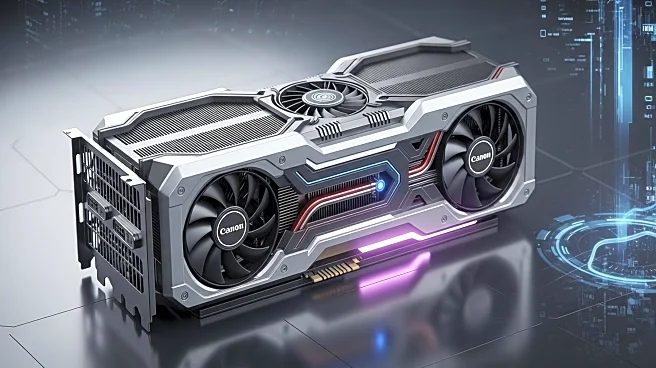What's Happening?
Nvidia, a leading player in the AI semiconductor industry, is navigating complex geopolitical challenges as the U.S.-China tech rivalry intensifies. The company has reported significant revenue growth but faces restrictions on selling its H20 chips to China due to U.S. export controls. These restrictions have cost Nvidia billions in potential revenue, while Chinese competitors like Cambricon have gained market share. Despite these challenges, Nvidia is developing a China-compliant chip and diversifying its global operations to mitigate risks.
Why It's Important?
Nvidia's situation highlights the broader impact of geopolitical tensions on the tech industry. As a key player in AI and semiconductor markets, Nvidia's ability to adapt to regulatory changes and maintain its competitive edge is crucial for its long-term success. The company's strategic moves, such as developing new products and expanding partnerships, could influence the global tech landscape and affect stakeholders across the industry. The outcome of Nvidia's efforts to navigate these challenges will have implications for innovation, market dynamics, and international trade.
What's Next?
Nvidia's future will depend on its ability to secure approval for its new chip and regain market access in China. The company's ongoing diversification efforts and financial strength position it to weather current challenges, but geopolitical risks remain. Analysts will be watching Nvidia's performance in upcoming quarters, as well as any changes in U.S. export policies that could impact its operations. The company's strategic decisions will be critical in determining its role in the evolving AI and semiconductor markets.









